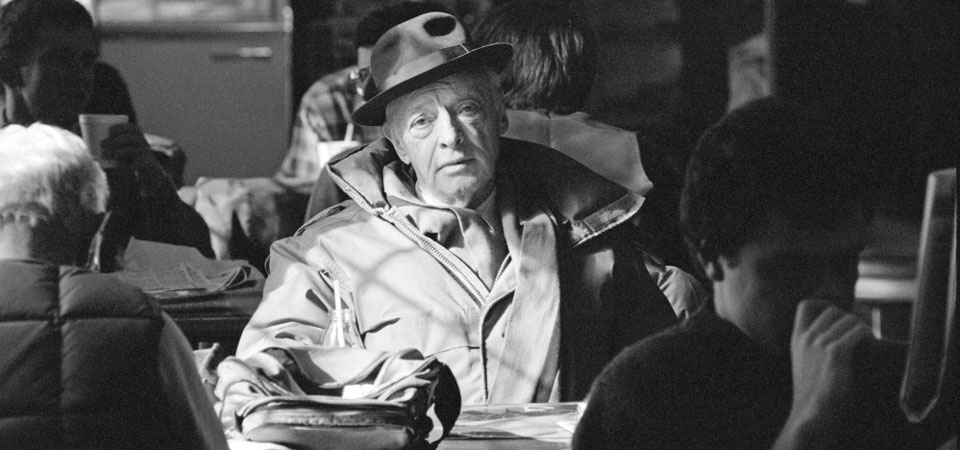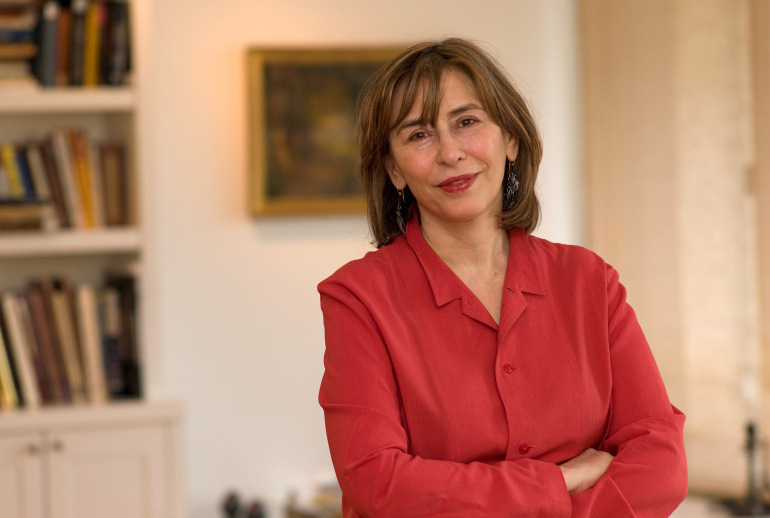- Home |
- Search Results |
- Azar Nafisi on Saul Bellow

Azar Nafisi is best known as the author of the compassionate and harrowing international bestseller Reading Lolita in Tehran: A Memoir in Books, which recounts her experiences as a university professor during the Islamic revolution in Iran.
To mark what would have been Saul Bellow’s 100th birthday, here she describes the time she met the writer for whom her students in Iran had such a fondness.
My students and I had a joke among us about the literary snobs in Iran who would call everybody by their first name. Between us, we referred to our favourite authors by their first name in the same way and so to us he was never Bellow but always Saul.
In the early 90s I began travelling from Iran to conferences in the US and elsewhere. During one of my last trips to the U.S., I was chatting with somebody about Saul Bellow and he cut me off and asked, “Do you want to see him?” It turned out that they were close friends. Of course I said no because I feel that with your favourite authors you’ve already got the best of them and what if I didn’t like him? What if we were to have a banal conversation?
When I returned to Iran and told my students about how I almost met Saul, they were furious that I had decided not to. They said, “How could you do this? We had so much to tell him!” They wanted me to go back and see him on my next trip there. They had written poems for me to give him. One of my students, Mitra, had painted some flowers called cyclamens, described in The Dean’s December – “It was the cyclamen plants that absorbed him hypnotically…”. So I went back and I told that friend that I wanted to see Saul and on New Year’s Eve of 1996 I got on a train from Washington DC to Boston to meet Saul Bellow and, I will never forget this, somehow it just stays in my mind, when I called him to confirm that I was going to see him he said in this very, sort of seductive voice he said “Yes, yes and my wife has baked you a cake”. I felt that the reason he was telling me was that it was a special cake. It was a compliment to his wife and a sort of message about the intriguing and exciting things I would be encountering there, the cake as a symbol.
It was a wonderful meeting. In More Die of Heartbreak, he comes upon this insight that the ordeal of the East is naked brutality but, in the West he says, “More die of heartbreak than radiation” and nobody protests in the streets against heartbreak. When I went to see him, I wanted to challenge him on this. I wanted to tell him that in the ‘East’, in the totalitarian societies, what they first take away from you is the heart, is the ability to love. It is feeling. It is emotion. That what my students suffered from and what people were dying of everyday was indeed heartbreak. I told him that Iran wasn’t a political fight but an existential fight and that I wanted to be who I was as a writer and a teacher and, when they forced me to cover my hair, when they deprived me of the books that I love, when they did not allow me to express my love in public, each of these was like a death for me. I’ll never forget that at the end of when I said all these things to him he nodded his head and said, “Yes, I remember and Natalia Ginzburg also in her memoirs talks about the significance of the detail.” And so we ended our conversation with that acknowledgement that all over the world no matter what country you live in, more people die of heartbreak than of radiation.

Bellow became special to us because he draws specific attention to the differences between a totalitarian society, his Eastern Europe, our Iran, and democratic society. He poses this question most pointedly in The Bellarossa Connection. Once you survive the ordeal of Holocaust, will you be able to survive the ordeal of freedom? This is something that my students understood because they realised as I did that, living in a totalitarian society, we were deprived of our history and our memory. Bellow’s genius lies in his understanding that democratic societies have their own ordeals too. He not only critiqued totalitarian systems but correctly predicted the dilemmas of democracy, and the dangers threatening it, not least our sleeping consciousness, atrophy of feeling, and our desire to forget. For us in Iran this whole idea of memory was crucial. I told my students that the only defence against the totalitarian system was to remember where their mothers and grandmothers came from. A lesson wonderfully illustrated by Saul.